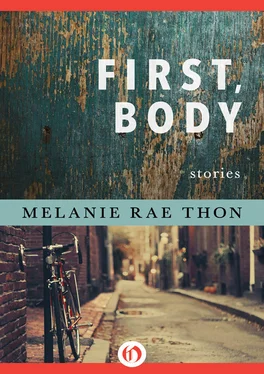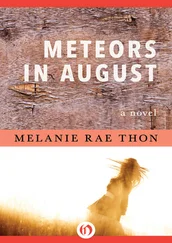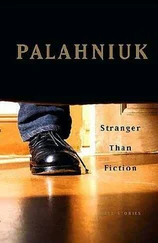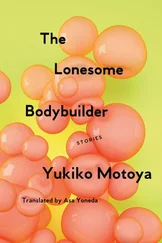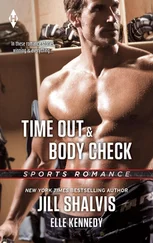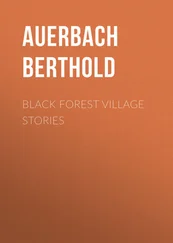The sky sparked. Stars fell into the pond and sizzled out. We looked for the boys, the ones who’d invited us, but there were too many dressed the same, in blue jeans and plaid shirts, too many cowboy hats pulled down.
One boy hung on to a torch until his whole body glowed. I saw white teeth, slash of red shirt, denim jacket open down the front. I thought, He wants to burn . But he whooped, tossed the flare in time. It spiraled toward the pond, shooting flames back into the boxes up the shore. Firecrackers popped like guns; red comets soared; crazyhorses zigzagged along the beach, across the water, into the crowd.
The boy was gone.
In the blasts of light, I saw fragments of bodies, scorched earth, people running up the hill, people falling, arms and legs in the flickering grass, one hand raised, three heads rolling, and then the strangest noise: giggles rippling, a chorus of girls.
They called to the boy, their voices like their laughter, a thin, fluttery sound. Niles . They sang his name across the water.
Then I was lying in the grass with that boy. Cold stars swirled in the hole of the sky. In the weird silence, bodies mended; bodies became shape and shadow; pieces were found. Flame became pink gasoline guzzled down. Gunfire turned to curse and moan.
This boy was the only one I wanted, the brave one, the crazy one, the one who blazed out. He rose up from the water, red shirt soaked, jacket torn off. I said, You were something , and he sat down. Now I was wet too, my clothes and hair dripping, as if he’d taken me into the sky, as if we’d both fallen into the pond.
I whispered his name, Niles , hummed it like the girls, but soft. He said, Call me Yellow Dog .
My purse was gone, the letter opener and my keys lost. The boy kept drinking that pink gasoline and I wondered how he’d die, if he’d go blind on ethanol or catch fire and drown. I’d heard stories my whole life. The Indians were always killing themselves: leaping off bridges, inhaling ammonia, stepping in front of trucks. Barefoot girls with bruised faces wandered into the snow and lay down till the snow melted around them, till it froze hard.
But tonight this boy was strong.
Tonight this boy could not be killed by gas or flame or gun.
He had a stone in his pocket, small and smooth, like a bird’s egg and almost blue. He let me touch it. He said it got heavy sometimes. He said, That’s when I watch my back — that’s how I know . I kissed him. I put my tongue deep in his mouth. I said, How much does it weigh now ? And he said, Baby, it’s dragging me down .
My clothes dried stiff with mud. I remember grabbing his coarse braid, how it seemed alive, how I wanted it for myself. I thought I’d snip it off when he passed out. His hands were down my cut-off jeans. He knew my thoughts exactly. He whispered, I’ll slit your throat . I let his long hair go. His body on me was heavy now. I thought he must be afraid. I thought it must be the stone. He held me down in the dirt, pressed hard: he wanted to stop my breath; he wanted to squeeze the blood from my heart. I clutched his wrists. I said, Enough .
I imagined my father pacing the house, that sound in the hall. I heard my own lies spit back at me, felt them twist around bare skin, a burning rope.
I remember ramming my knee into the boy’s crotch, his yelp and curse, me rolling free. I called to Jean, heard her blurred answer rise out of some distant ground.
I remember crawling, scraping my knees, feeling for my purse in the grass. Then he was on me, tugging at my unzipped jeans, wrenching my arm. He said, I could break every bone . But he didn’t. He stood up, this Niles, this Yellow Dog. He said, Go home .
He was the one to find my purse. He took the letter opener, licked the silver blade, slid it under his belt. He dropped my keys beside me. He said, I could have thrown these in the water . He said, I didn’t. You know why? Because I want your white ass gone .
When I looked up, the stars above him spun.
I yelled Jean’s name again. I said, Are you okay ? And she said, Fuck you — go .
I staggered up the hill. I saw my father at the kitchen table, his head in his hands. I heard every word of his prayers as if I were some terrible god. I felt that tightness in my chest, his body. I felt my left leg giving out.
I saw what he saw, my mother’s yellow dress, me standing in the door. I smelled his cigarettes. He said, The cherry trees, they break your heart .
I drove up that road through the reservation, my mother’s laughter floating through the open windows of the truck. She made me dizzy, all that dancing — I felt myself pulled forward, twirled, pushed back, hard.
The lights of the steeple still burned. I was Noelle, the same kind of woman, a girl who couldn’t stand up by herself. I wanted to weep for my father. I wanted not to be drunk when I got home, not to smell of boy’s sweat, sulfur and crushed lilacs, mud. I wanted to stop feeling hair between my fingers, to stop feeling hands slipping under my clothes.
The dogs on the roof growled. All the white plaster deer surged toward the road. Wind on my face blew cold.
Past the Church of the Good Shepherd, a hundred pairs of eyes watched from the woods, all the living deer hidden between trees along this road. I practiced lies to tell when I got home. I thought, My mother and I, we’re blood and bone. I saw how every lie would be undone. I watched a dark man wrap his arms around my pale mother and spin her into a funnel of smoke.
Then he was there, that very man, rising up in a swirl of dust at the side of the road — a vision, a ghost, weaving in front of me. Then he was real, a body in dark clothes.
There was no time for a drunken girl to stop.
No time to lift my heavy foot from the gas.
I saw his body fly, then fall.
I saw the thickness of it, as if for a moment the whole night gathered in one place to become that man, my mother’s lover. A door opened at the back of a bar in Paradise. His body filled that space, so black even the stars went out.
I am a woman now, remembering. I am a woman drinking whiskey in a cold car, watching the lights in my father’s house. I am a woman who wants to open his door in time, to find her father there and tell.
Twenty-one years since I met Vincent Blew on that road, twenty-one years, and I swear, even now, when I touch my bare skin, when I smell lilacs, I can feel him, how warm he was, how his skin became my shadow, how I wear it still.
He was just another drunken Indian trying to find his way home. After he met me, he hid his body in the tall grass all night and the next day. Almost dusk before he was found. There was time for a smashed headlight to be reassembled. Time for a dented fender to be pounded out and dabbed with fresh green paint. Time for a girl to sober up. Time for lies to be retold. Here, behind my father’s cottage, I can feel the body of the truck, that fender, the edges of the paint, how it chipped and peeled, how the cracks filled with rust.
I waited for two men in boots and mirrored glasses to come for me, to take me to a room, close the door, to ask me questions in voices too low for my father to hear, to urge and probe, to promise no one would hurt me if I simply told the truth.
Imagine: No hurt .
But no one asked.
And no one told.
I wanted them to come. I thought their questions would feel like love, that relentless desire to know.
I waited for them.
I’m waiting now.
I know the man on the road that night was not my mother’s lover. He was Vincent Blew. He was mine alone.
He lies down beside me in my narrow bed. I think it is the bed my father built. The smell of pine breaks my heart. He touches me in my sleep, traces the cage of my ribs. He says, You remind me of somebody . He wets one finger and carves a line down the center of my body, throat to crotch. He says, This is the line only I can cross . He lays his head in the hollow of my pelvis. He says, Yes, I remember you, every bone .
Читать дальше
